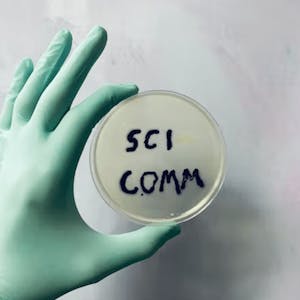Evidence-based effective science communication is increasingly necessary in today's world. This specialization, offered by the University of Colorado Boulder, focuses on the principles of human learning and how they can be applied to design science outreach activities. The course delves into the learning sciences, exploring theoretical frameworks for explaining human learning and the relationship between cognitive biases and misinformation. It also covers the role of emotion, authenticity, trust, and empathy in fostering connection and effective science communication. Additionally, the course provides insights into different modalities for science communication, including oral, written, technological, and artistic forms, and how to apply learning engineering to design effective communication activities.
Throughout the course, participants will learn to identify common pitfalls in science communication and outreach, compare and contrast various communication modalities, and design science communication and outreach activities based on the principles learned. The content is designed to help individuals become more effective and impactful science communicators, equipped with the knowledge and skills to engage diverse audiences and promote understanding of scientific concepts.
Certificate Available ✔
Get Started / More Info
The course comprises three modules that cover the hard and soft sides of science communication and various modes of communication. Participants will learn about the learning sciences, human behavior, and effective design principles for science communication activities.
The first module, "The Harder Side of Science Communication," delves into the learning sciences, exploring different theoretical frameworks for explaining human learning and the relationship between cognitive biases and misinformation. It also covers the process of motivational interviewing and its utility in science communication.
In the second module, "The Softer Side of Science Communication," participants will learn about the role of emotion in human behavior and its relevance to science communication. The module also addresses authenticity, trust, empathy, improvisation, storytelling, nonverbal communication, and inclusive and trauma-informed science communication.
The third module, "Modes of Science Communication," focuses on best practices for oral, written, technological, and artistic forms of science communication. It also provides guidance on applying principles of learning engineering to design effective forms of science communication.
This course equips K-12 educators to teach computational thinking, nested loops, events, and variables. It focuses on connecting real-world experiences to programming...
Formación docente basada en la práctica para desarrollar habilidades del siglo XXI.
New Learning: Principles and Patterns of Pedagogy is a comprehensive exploration of contemporary educational paradigms, providing insights into the changing landscapes...
Unleash your creativity as a teacher with Buncee. Learn to create engaging learning activities and present material using this powerful tool.